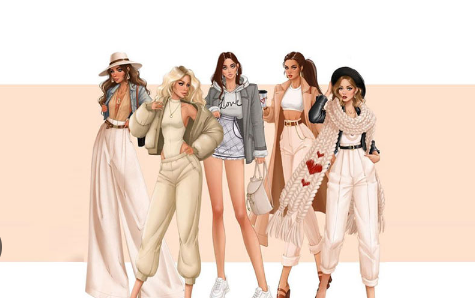

Introduction to sustainable fashion
Fashion has always been a powerful form of expression, but it’s evolving in exciting ways. As the world becomes increasingly aware of environmental issues, sustainable fashion is stepping into the spotlight. The notion of eco-friendly clothing isn’t just a trend—it’s a movement reshaping how we think about style and consumption.
With fast fashion dominating our wardrobes for so long, it’s time to reevaluate what we wear and where it comes from. This shift isn’t just happening on runways; it’s making waves across entertainment industries too. From red carpet events to music festivals, celebrities are embracing sustainability like never before.
Join us as we explore this vibrant intersection of style and responsibility, highlighting those who are leading the charge toward a greener future in fashion.
The impact of fast fashion on the environment
Fast fashion has revolutionized the clothing industry, but its environmental toll is staggering. Cheap materials and rapid production cycles contribute to massive waste. Millions of garments are discarded each year, often ending up in landfills.
The water consumption involved in sourcing these materials is alarming. For example, it takes over 2,700 liters of water to make a single cotton t-shirt. This unsustainable practice depletes vital resources and pollutes local waterways with toxic chemicals.
Carbon emissions also rise as fast fashion brands prioritize speed over sustainability. The transportation and manufacturing processes release harmful gases into our atmosphere, worsening climate change.
In addition to pollution and resource depletion, fast fashion often exploits labor in developing countries. Workers face poor conditions for minimal pay while producing the very items that fuel this trend. The cycle continues as consumers chase fleeting styles without considering the broader impact on our planet’s well-being.
Celebrities leading the way in sustainable style
Celebrities are shining a spotlight on sustainable fashion like never before. Their influence reaches millions, making eco-friendly choices trendy and desirable.
Stars such as Emma Watson advocate for ethical brands. Her commitment to sustainability resonates with fans and encourages them to consider their own fashion habits.
Then there’s Leonardo DiCaprio, known for his environmental activism. He often wears brands that prioritize sustainability in their production processes.
Even the likes of Rihanna have ventured into eco-conscious territory with her Fenty brand, which embraces inclusivity alongside environmentally responsible practices.
These notable figures not only wear sustainable pieces but also share insights through social media platforms. They spark conversations about the importance of conscious consumerism while inspiring others to follow suit. The ripple effect is powerful; when celebrities embrace change, it ignites passion in their audiences too.
Brands and designers embracing eco-friendly practices
Brands and designers are increasingly prioritizing eco-friendly practices. They recognize the urgency of sustainable fashion and its impact on our planet.
Stella McCartney is a pioneer in this space. Her commitment to cruelty-free materials has set a high standard for luxury fashion. Every collection showcases innovative designs that don’t compromise ecological values.
Then there’s Reformation, known for its trendy pieces made from recycled fabrics. They emphasize transparency about their production processes, making sustainability accessible to everyday consumers.
Even giants like Nike have started incorporating recycled materials into their sneakers. Their Move to Zero initiative aims for zero carbon emissions, demonstrating how large-scale brands can lead by example.
These examples show that embracing eco-consciousness isn’t just a trend; it’s becoming an essential part of brand identity in today’s marketplace. Designers are finding creative ways to merge style with sustainability while appealing to environmentally aware consumers.
How consumers can support sustainable fashion
Supporting sustainable fashion starts with making mindful choices. Consumers can begin by researching brands that prioritize eco-friendly practices. Look for certifications like Fair Trade or organic materials.
Shopping second-hand is another great option. Thrift stores and online platforms offer unique pieces while reducing waste. Vintage finds have a charm that new items often lack.
Investing in quality over quantity makes a difference too. Well-made garments last longer, minimizing the need to constantly purchase replacements.
Participating in clothing swaps with friends enables sharing styles without spending money or creating more waste. It’s fun and promotes community engagement.
Spreading awareness about sustainable fashion can impact others’ choices as well. Share your journey on social media, inspiring friends and family to consider their clothing consumption habits too!
The future of sustainable style in entertainment
The future of sustainable style in entertainment is bright. As awareness grows, the industry pivots toward eco-conscious choices. Film studios and production companies are rethinking wardrobe decisions.
Innovations in materials like organic cotton and recycled fibers are gaining traction. Costumes that tell a story now come with an ethical backstory. Designers are showcasing collections that emphasize sustainability on runways globally.
Collaborations between fashion brands and films are becoming commonplace. These partnerships spotlight eco-friendly lines, creating buzz while promoting environmental responsibility.
Audiences increasingly demand transparency from their favorite stars. This shift encourages celebrities to embrace sustainable practices not just at events but in everyday life as well.
As technology advances, we may see virtual clothing options for digital avatars too—an exciting frontier where sustainability meets creativity seamlessly. The blend of art and ethics will likely define upcoming trends, pushing boundaries further than ever before.
Conclusion
Sustainable fashion is not just a fleeting trend; it’s an evolving movement reshaping the entertainment industry. As celebrities and designers champion eco-friendly practices, they inspire others to reconsider their choices. The shift towards sustainable style reflects a growing awareness of our environmental impact.
Consumers are becoming more conscious of what they wear, supporting brands that prioritize sustainability over fast fashion. This collective effort can lead to significant change in how clothes are produced and consumed.
As we move forward, the integration of sustainability into entertainment will likely deepen. With increasing demand for ethical production methods, both established and emerging talents will continue to highlight this important issue. The future looks promising as eco-friendly initiatives gain traction in the world of fashion and beyond. Embracing sustainable style isn’t just beneficial for the planet; it fosters creativity and innovation within the industry too.
